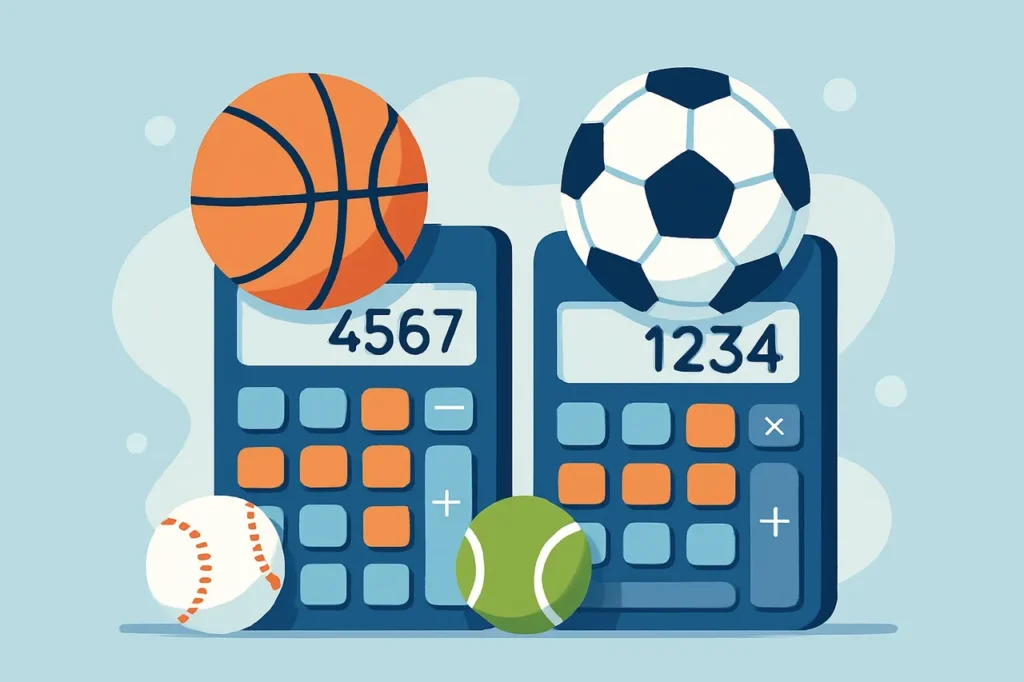Plastic Footprint Calculator
Plastic is everywhere in our daily lives – in the kitchen, bathroom, shopping, and on the go. Excessive plastic use contributes to growing waste, ocean pollution, and harm to wildlife. Our Plastic Footprint Calculator allows you to easily estimate how much plastic you use in different areas of life and see how much you can reduce your environmental impact by setting realistic reduction goals.
This tool helps you make conscious lifestyle changes, reduce plastic use, save energy, lower CO2 emissions, and protect marine animals.
How the Plastic Footprint Calculator Works
The calculator analyzes your weekly and monthly use of selected plastic products across three main categories. By doing so, it helps you identify which items have the biggest environmental impact and where the most effective changes can be made. Understanding these numbers allows you to set achievable goals and track your progress.
The main categories include:
- Food and kitchen – plastic bags, water bottles, food containers, disposable cups.
- Bathroom and laundry – shampoo bottles, toothbrushes.
- Containers and packaging – shopping bags, product packaging.
For each item, you can enter your current usage and a target goal, for example, reducing from 10 plastic bags per week to 4. The calculator automatically estimates potential savings in plastic, energy, CO2 emissions, and the number of protected marine animals.
Sample Plastic Usage Table
To better understand how daily choices translate into plastic consumption, here’s a sample table. It shows current usage, reduction goals, and potential impact in each category, helping you see which changes matter most.
| Category | Product | Current Usage | Target Goal | Reduction Example |
|---|---|---|---|---|
| Food & Kitchen | Plastic bags | 10/week | 4/week | -6 |
| Food & Kitchen | Water bottles | 23/week | 2/week | -21 |
| Food & Kitchen | Food containers | 33/week | 1/week | -32 |
| Bathroom & Laundry | Shampoo bottles | 2/month | 1/month | -1 |
| Bathroom & Laundry | Toothbrushes | 2/month | 1/month | -1 |
| Containers & Packaging | Shopping bags | 2/week | 1/week | -1 |
| Containers & Packaging | Product packaging | 2/week | 1/week | -1 |
Results and Interpretation
Once you enter your data, the calculator estimates your plastic footprint and environmental impact. Even small daily changes can lead to significant benefits for the planet.
Key results include:
- Plastic waste reduction – e.g., 69.2 kg/year.
- CO2 savings – e.g., 124.6 kg CO2/year.
- Energy savings – e.g., 5,812 MJ/year.
- Protected marine animals – e.g., 380 animals/year.
These figures show that conscious choices in everyday life can significantly reduce your ecological footprint.
Fun Facts About Plastic
Plastic takes a very long time to decompose and affects entire ecosystems. Even small changes in habits can make a real difference. Here are some interesting facts:
- A single plastic bottle takes about 400 years to decompose.
- Over 8 million tons of plastic enter the oceans every year, threatening marine life.
- Switching from disposable bottles and cups to reusable ones can reduce your annual CO2 emissions by up to 100 kg.
- Reducing one plastic bag per week saves 52 pieces of plastic annually.
Why Reduce Plastic?
Reducing plastic has both environmental and educational benefits. Being aware of your personal impact motivates continuous improvement and helps others understand the importance of small changes.
By reducing plastic in daily life, you can:
- Create a healthier environment – fewer landfills and less ocean pollution.
- Lower CO2 emissions – less energy needed for plastic production.
- Protect marine life – fewer animals at risk of ingesting or getting entangled in plastic.
- Increase ecological awareness – make informed purchasing choices and adopt sustainable habits.
Based on 1 source
- 1. Andrady, A. L. (2015). Plastics and Environmental Sustainability. Wiley.
Plastic Footprint Calculator - FAQ
Yes, our tool is completely free. Our goal is to promote ecological awareness and encourage plastic reduction.
The calculator is based on estimates. The more accurate your data, the more precise the result will be, but even approximate values will give you an idea of your environmental impact.
A plastic footprint is the total amount of plastic an individual uses and discards over a specific period, usually a year. It includes both single-use products and packaging.
Plastic takes hundreds of years to decompose, polluting soil and water, and harming wildlife. Its production is associated with high greenhouse gas emissions. Reducing plastic consumption helps protect ecosystems and combat climate change.
The best alternatives are reusable products: cotton shopping bags, stainless steel or glass water bottles and coffee cups, beeswax wraps instead of cling film, and solid cosmetics.





